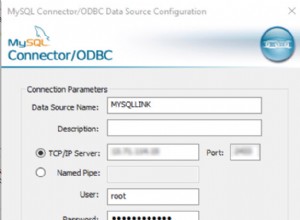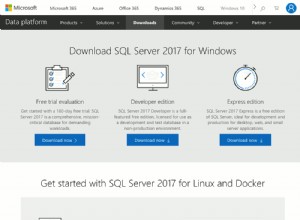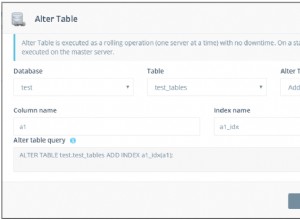Ini adalah celah pertama saya pada sebuah kueri, berdasarkan saran Andomar. Kueri ini dimaksudkan untuk memberikan daftar izin yang telah diterapkan pengguna secara langsung ke akun pengguna, atau melalui peran yang dimiliki pengguna.
/*
Security Audit Report
1) List all access provisioned to a sql user or windows user/group directly
2) List all access provisioned to a sql user or windows user/group through a database or application role
3) List all access provisioned to the public role
Columns Returned:
UserName : SQL or Windows/Active Directory user account. This could also be an Active Directory group.
UserType : Value will be either 'SQL User' or 'Windows User'. This reflects the type of user defined for the
SQL Server user account.
DatabaseUserName: Name of the associated user as defined in the database user account. The database user may not be the
same as the server user.
Role : The role name. This will be null if the associated permissions to the object are defined at directly
on the user account, otherwise this will be the name of the role that the user is a member of.
PermissionType : Type of permissions the user/role has on an object. Examples could include CONNECT, EXECUTE, SELECT
DELETE, INSERT, ALTER, CONTROL, TAKE OWNERSHIP, VIEW DEFINITION, etc.
This value may not be populated for all roles. Some built in roles have implicit permission
definitions.
PermissionState : Reflects the state of the permission type, examples could include GRANT, DENY, etc.
This value may not be populated for all roles. Some built in roles have implicit permission
definitions.
ObjectType : Type of object the user/role is assigned permissions on. Examples could include USER_TABLE,
SQL_SCALAR_FUNCTION, SQL_INLINE_TABLE_VALUED_FUNCTION, SQL_STORED_PROCEDURE, VIEW, etc.
This value may not be populated for all roles. Some built in roles have implicit permission
definitions.
ObjectName : Name of the object that the user/role is assigned permissions on.
This value may not be populated for all roles. Some built in roles have implicit permission
definitions.
ColumnName : Name of the column of the object that the user/role is assigned permissions on. This value
is only populated if the object is a table, view or a table value function.
*/
--List all access provisioned to a sql user or windows user/group directly
SELECT
[UserName] = CASE princ.[type]
WHEN 'S' THEN princ.[name]
WHEN 'U' THEN ulogin.[name] COLLATE Latin1_General_CI_AI
END,
[UserType] = CASE princ.[type]
WHEN 'S' THEN 'SQL User'
WHEN 'U' THEN 'Windows User'
END,
[DatabaseUserName] = princ.[name],
[Role] = null,
[PermissionType] = perm.[permission_name],
[PermissionState] = perm.[state_desc],
[ObjectType] = obj.type_desc,--perm.[class_desc],
[ObjectName] = OBJECT_NAME(perm.major_id),
[ColumnName] = col.[name]
FROM
--database user
sys.database_principals princ
LEFT JOIN
--Login accounts
sys.login_token ulogin on princ.[sid] = ulogin.[sid]
LEFT JOIN
--Permissions
sys.database_permissions perm ON perm.[grantee_principal_id] = princ.[principal_id]
LEFT JOIN
--Table columns
sys.columns col ON col.[object_id] = perm.major_id
AND col.[column_id] = perm.[minor_id]
LEFT JOIN
sys.objects obj ON perm.[major_id] = obj.[object_id]
WHERE
princ.[type] in ('S','U')
UNION
--List all access provisioned to a sql user or windows user/group through a database or application role
SELECT
[UserName] = CASE memberprinc.[type]
WHEN 'S' THEN memberprinc.[name]
WHEN 'U' THEN ulogin.[name] COLLATE Latin1_General_CI_AI
END,
[UserType] = CASE memberprinc.[type]
WHEN 'S' THEN 'SQL User'
WHEN 'U' THEN 'Windows User'
END,
[DatabaseUserName] = memberprinc.[name],
[Role] = roleprinc.[name],
[PermissionType] = perm.[permission_name],
[PermissionState] = perm.[state_desc],
[ObjectType] = obj.type_desc,--perm.[class_desc],
[ObjectName] = OBJECT_NAME(perm.major_id),
[ColumnName] = col.[name]
FROM
--Role/member associations
sys.database_role_members members
JOIN
--Roles
sys.database_principals roleprinc ON roleprinc.[principal_id] = members.[role_principal_id]
JOIN
--Role members (database users)
sys.database_principals memberprinc ON memberprinc.[principal_id] = members.[member_principal_id]
LEFT JOIN
--Login accounts
sys.login_token ulogin on memberprinc.[sid] = ulogin.[sid]
LEFT JOIN
--Permissions
sys.database_permissions perm ON perm.[grantee_principal_id] = roleprinc.[principal_id]
LEFT JOIN
--Table columns
sys.columns col on col.[object_id] = perm.major_id
AND col.[column_id] = perm.[minor_id]
LEFT JOIN
sys.objects obj ON perm.[major_id] = obj.[object_id]
UNION
--List all access provisioned to the public role, which everyone gets by default
SELECT
[UserName] = '{All Users}',
[UserType] = '{All Users}',
[DatabaseUserName] = '{All Users}',
[Role] = roleprinc.[name],
[PermissionType] = perm.[permission_name],
[PermissionState] = perm.[state_desc],
[ObjectType] = obj.type_desc,--perm.[class_desc],
[ObjectName] = OBJECT_NAME(perm.major_id),
[ColumnName] = col.[name]
FROM
--Roles
sys.database_principals roleprinc
LEFT JOIN
--Role permissions
sys.database_permissions perm ON perm.[grantee_principal_id] = roleprinc.[principal_id]
LEFT JOIN
--Table columns
sys.columns col on col.[object_id] = perm.major_id
AND col.[column_id] = perm.[minor_id]
JOIN
--All objects
sys.objects obj ON obj.[object_id] = perm.[major_id]
WHERE
--Only roles
roleprinc.[type] = 'R' AND
--Only public role
roleprinc.[name] = 'public' AND
--Only objects of ours, not the MS objects
obj.is_ms_shipped = 0
ORDER BY
princ.[Name],
OBJECT_NAME(perm.major_id),
col.[name],
perm.[permission_name],
perm.[state_desc],
obj.type_desc--perm.[class_desc]




